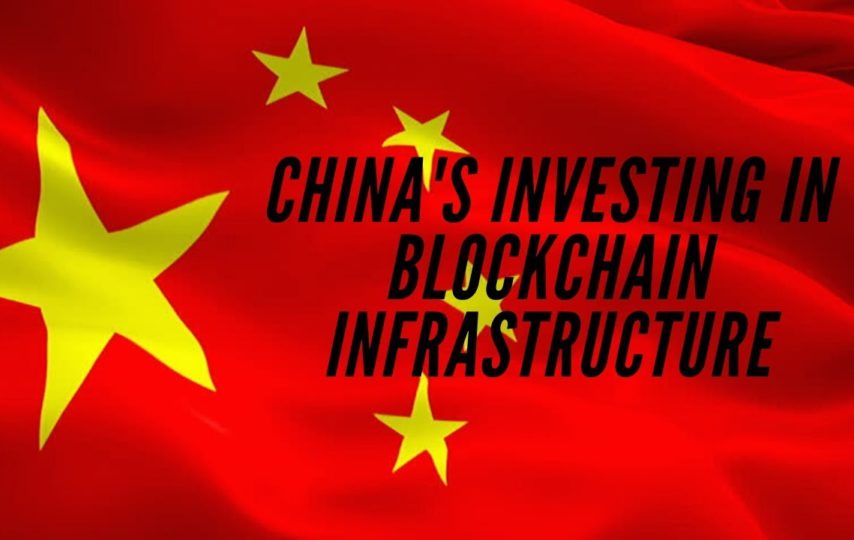In the past few years, you may have heard the term “blockchain,” especially if you’re involved in technology, investing or banking. But you might not have gotten a full explanation of what the blockchain is, or why technology experts are investing in it so heavily. Here, you’ll learn more about what the blockchain is, how it works, why China is making it a priority and whether it’s a smart investment for you.
- What Is the Blockchain?
Blockchain is the technology that stores records of digital information and transactions. The structure is relatively simple. Pieces of digital information are the blocks, which get kept in the chain, or public database. The blockchain is decentralized, which means a network of people run it, instead of one authority. Currently, the primary use of the blockchain is keeping records of transactions of Bitcoin and other cryptocurrencies, like a ledger.
Whenever someone exchanges any amount of cryptocurrency, the transaction gets recorded in a unique block on the chain. Each participant in a trade has a digital signature tied to their identity. The signatures and amount of the exchange get recorded in a new block. Once a transaction or data point is in the blockchain, nobody can edit or delete it, because they would have to change every single block that came after it. The permanence and transparency of the blockchain is part of what makes it so appealing.
- Why Is China Prioritizing the Blockchain?
China’s President Xi Jinping is fiercely backing investment in the blockchain. The leader of the world’s second-largest economy described blockchain as an “important breakthrough in independent innovation of core technologies.” China has always prioritized being a leader in the world’s most impactful new technologies, and blockchain is no different. People have registered over 500 projects involving blockchain with China’s Cyber Administration. Exchanging cryptocurrency is only scratching the surface of the blockchain technology. Other planned uses involve food safety and supply chain, prevention of fraud and donation tracking.
China is aiming to set the standard in blockchain, which would help them gain an advantage in trading with growing technology markets in Africa, Europe and the Middle East. China is planning to use the technology to make a digital currency that can be easily accessible in international markets. They want their new digital yuan to become a global currency to increase payment speed and security when trading with other countries.
- Other Applications for Blockchain
The Bitcoin blockchain is still the most widely used application of the technology, but there are other players in the game using the technology for different purposes. Various companies, like Ethereum, Hyperledger, GoChain and even IBM, have developed blockchain platforms to capitalize on the possibilities of the technology. According to financial tech reporter Gina Clark, “Blockchain solutions are showing up in the fields of utilities, health care, payments, supply-chain management, government, agriculture and more.” The common thread between all these essential industries and blockchain is a potential for new levels of efficiency and security.
Ethereum created a blockchain platform that allows users to create decentralized applications. Some examples of what’s currently available include smart contracts, financial applications, digital markets, games and even social networks. The banking industry is one of the most heavily involved industries exploring the future with blockchain technology. BBVA, a Spanish bank, used their newly developed “distributed ledger technology” to carry out an $89.7 million loan with the company Indra. This trial run may be the first of a completely changed loan structure for banks around the world.
- Types of Blockchain Investments
As with any innovative or disruptive technology, there are hundreds of companies that want to invest in the future. With a technology that could change the world as much as blockchain has the potential to, it would be a surprise if tech companies like Apple, Microsoft and IBM weren’t investing. Other notable giants from other industries investing in blockchain include the Walt Disney Company, Nestle, Comcast, Toyota and Pfizer. These companies are either spending billions on developing proprietary blockchain platforms, or partnering with startups to integrate the technology into their business models.
What if you’re not a tech giant, bank or media conglomerate, but you still want to get involved and financially benefit from the potential future of transactions? Luckily, there are avenues for individuals, other than buying Bitcoin. Here are a couple of options for investing in blockchain.
- Cryptocurrency miners: Plenty of companies mine cryptocurrency, and some of them, like HIVE Blockchain, are publicly traded.
- Hardware manufacturers: Most household computers don’t have the tools to mine for cryptocurrency, which is why there are companies that manufacture hardware made specifically for the task. You can buy shares of these companies, such as Bitmain.
- Cloud-based companies: Cloud computing companies are beginning to provide services using blockchain technology, like Amazon.
- Financial service companies: With such a vast opportunity for blockchain to revolutionize banking and other financial services, firms like Bank of America are a potentially great investment.
- Should You Invest in Blockchain?
With all the buzz and potential around the disruptive technology, it’s very tempting to jump in and start investing. But first, you want to consider the risks and potential reward to see if it’s the right decision for you. For those who have the capital and desire to invest, here are some pros and cons to weigh.
- Pros
- Diversification: Dozens of different industries are adopting blockchain technology.
- Stability and security: Blockchain doesn’t depend on a single control center, and once data is in a blockchain, it is nearly impossible to change or remove.
- Direct: When making transactions through a blockchain platform, two entities don’t need to deal with a third party or mediator.
- Cons
- Cost: Research, development and implementation of the technology is costly to start up.
- Uncertainty of uses: With so many companies trying to make software to use with blockchain platforms, you must be careful of what you choose to install on your computer in case of viruses or other malicious intent.
- Regulations: This disadvantage may be the most concerning, because no one knows how governments of the future will regulate the technology once it becomes more widespread.
The future looks bright for massive advancements and investment opportunities in blockchain technology. One of the industry’s leading experts, Samantha Radocchia, perfectly summed up the central thing to remember if you do decide to get involved with the platform. When asked for her advice on how to invest $50,000, Radocchia said, “I would invest in infrastructure, or the tools that are going to support this decentralized way of life.” She explained that the output produced by the technology, like cryptocurrencies, is still unproven.
Once the outputs of blockchain platforms become more refined, it could be a stable investment. But if you want to take the plunge today, point your assets toward companies building blockchain infrastructure like Ripple, Ethereum, Chronicled, GoChain and IBM.








